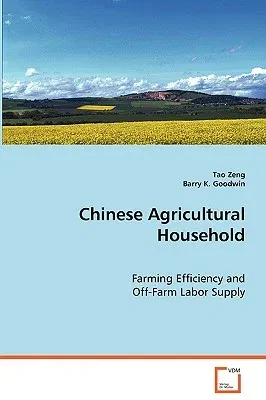Tao Zeng
(Author)Chinese Agricultural HouseholdPaperback, 29 August 2008

Qty
1
Turbo
Ships in 2 - 3 days
In Stock
Free Delivery
Cash on Delivery
15 Days
Free Returns
Secure Checkout
Print Length
176 pages
Language
English
Publisher
VDM Verlag Dr. Mueller E.K.
Date Published
29 Aug 2008
ISBN-10
363905959X
ISBN-13
9783639059595
Description
Product Details
Authors:
Book Format:
Paperback
Country of Origin:
US
Date Published:
29 August 2008
Dimensions:
22.86 x
15.24 x
0.97 cm
ISBN-10:
363905959X
ISBN-13:
9783639059595
Language:
English
Location:
Saarbrucken
Pages:
176
Publisher:
Weight:
244.94 gm

